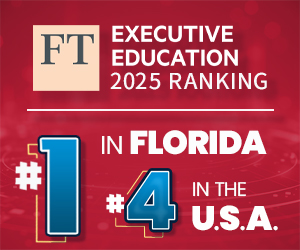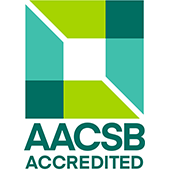Executive MBA Curriculum
The 23-month Executive MBA is 40 - 46 total credits:
28 - 34 Core MBA credits
12 Elective credits
FAU’s Executive MBA course curriculum is career-centered and aimed at advancing the quality of business management in the workplace while empowering students in their career aspirations. Executive MBA coursework consists of core courses and electives.
*Students who have previously taken Financial Accounting Concepts (ACG 6027) and Corporate Financial Management (FIN 6406), or the undergraduate level equivalents, within the last five years and received a grade of “B” or better may have up to 6 foundation credits waived.
EMBA Core Curriculum EMBA Specializations
















